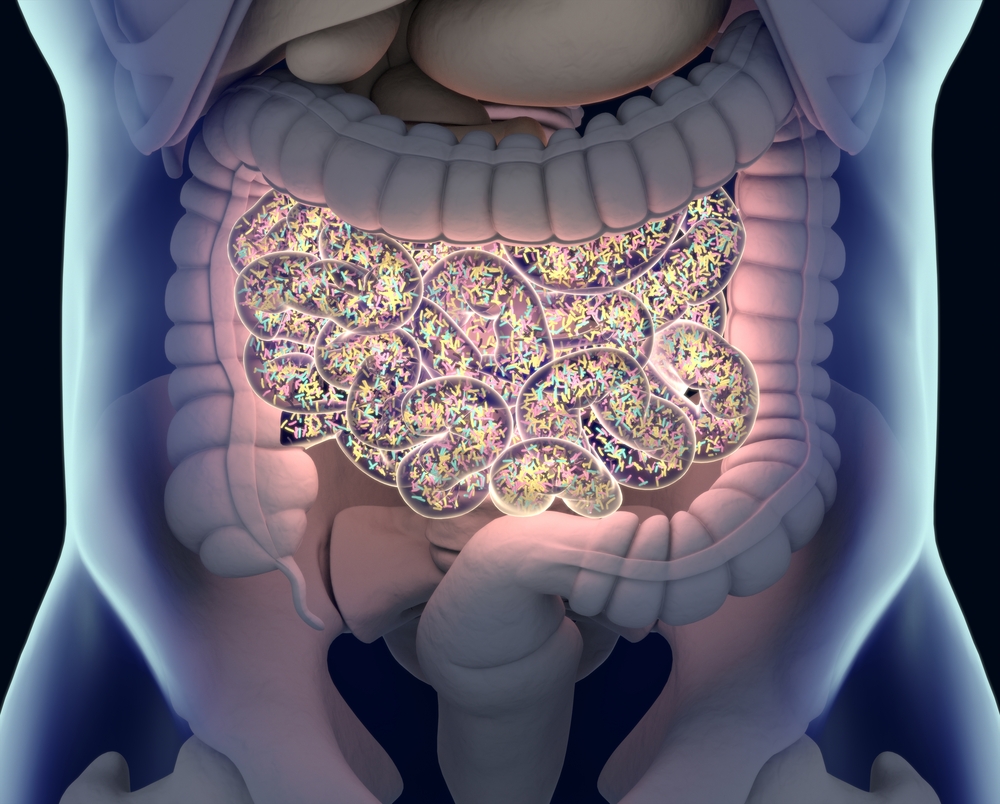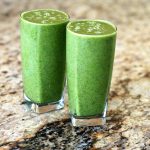The microbiome is a community of trillions of microorganisms that live inside our bodies. Imagine a city filled with people hurrying to get to work or appointments on a weekday morning. These microorganisms play an important role in our health.
This includes different types of microorganisms such as bacteria, fungi, parasites, and bugs. The “bugs” refers to the trillions of microorganisms that live in the gastrointestinal tract. These microorganisms are important for a healthy person as they aid in digestion, produce vitamins, and help protect the body from harmful bacteria.
The microbiome is called a supporting organ because it does so many key things to keep the human body running smoothly every day.
The microbes that live in and on our bodies are unique to each individual and are determined by our DNA. Microorganisms are passed from mother to infant in the birth canal and through breast milk. The types of microorganisms an infant is exposed to is determined by the types of microorganisms found in the mother. The microbiome can later be changed by things such as diet and environment, which can either be harmful or helpful to health.
The microbiome consists of microbes that can either be helpful or harmful. Some of the microorganisms in the human body promote disease, while most of them are symbiotic, meaning that both the human body and the microorganisms benefit.
In a healthy body, both pathogenic and symbiotic microbiota are able to exist without any problems.
If the balance of good and bad bacteria in the gut is disturbed, dysbiosis occurs, stopping the normal interactions between them. If the body does not get enough sleep, it may become more susceptible to disease.
How Microbiota Benefit the Body
The microbes that live in our gut help to keep us healthy in many ways. They help to stimulate our immune system, break down potentially toxic food compounds, and synthesize certain vitamins and amino acids that we need, including the B vitamins and vitamin K.
For example, the key enzymes needed to form vitamin B12 are only found in bacteria, not in plants and animals.
One difference between sugars and complex carbohydrates is that sugars are absorbed more quickly in the upper part of the small intestine, while complex carbohydrates may travel lower to the large intestine. The microbiota there help to break down these compounds with their digestive enzymes.
The fermentation of carbohydrates that the body can’t digest results in the production of short chain fatty acids. These fatty acids can be used by the body as a nutrient source, but they also play an important role in muscle function and might help to prevent chronic diseases like certain cancers and bowel disorders.
The results of clinical studies suggest that short-chain fatty acids (SCFAs) may be helpful in treating ulcerative colitis, Crohn’s disease, and antibiotic-associated diarrhea.
The healthy bacteria in your microbiome will protect you from disease-causing organisms that you could encounter from consuming contaminated water or food.
There are many different types of bacteria that live in the human gut, including Prevotella, Ruminococcus, Bacteroides, and Firmicutes.
In the colon, you will find anaerobic bacteria such as Peptostreptococcus, Bifidobacterium, Lactobacillus, and Clostridium. These bacteria thrive in low oxygen environments.
The microbes are thought to protect against the excessive growth of harmful bacteria by taking up space on the mucus membranes of the gut, which is a big area of immune activity and output of antimicrobial proteins.
The Role of Probiotics
How can we ensure that we have enough or the right types of microbiota? You may be familiar with probiotics or perhaps already using them.
In 2015, sales of probiotic supplements exceeded $35 billion, and they are projected to increase to $65 billion by 2024. Although you may think the health claims are false, they make up a large part of the industry, which is constantly changing along with new research. Dr. Allan Walker, Professor of Nutrition at Harvard, believes that there are specific situations where probiotic supplements may be helpful, although published research is conflicting.
Probiotics are most effective in young and old age, because that is when the microbes are not as strong as usual, according to Walker. The colonization process of bacteria can be influenced more effectively with probiotics during these periods.
He reports that probiotics may also be beneficial in reducing the severity of diarrhea after exposure to pathogens and replenishing normal bacteria in the intestine after a patient takes antibiotics.
Even though Walker says that there are many circumstances that can cause a disruption in the balance of the intestine, he emphasizes that it is important to maintain a balanced diet. If you are not giving antibiotics to a healthy adult or older child, I do not think that a probiotic will have a significant effect on their overall health.
As probiotics are classified as supplements and not food, they are not overseen by the Food and Drug Administration in the U.S. The supplement company does not have to provide information on quality, so the probiotic pill might not contain the amounts listed on the label. The bacteria might also not be alive and active when you use it.
READ MORE: Why are Probiotics Necessary?
Diet and Gut Health
Diet is one of the main factors in determining which type of microbiota live in the colon, next to family genes, environment, and medication use. The microbiome is unique from person to person because of various factors.
A diet high in fiber affects the type and amount of microbiota in the intestines. Only enzymes from the microbiota living in the colon can break down dietary fiber. SCFA are produced during fermentation.
A lower pH in the colon creates an environment that is hostile to some types of bacteria, allowing only those that can survive in acidic conditions to thrive. A lower pH level prevents some harmful bacteria, like Clostridium difficile, from growing.
More and more research is being conducted on SCFAs and their many health benefits, such as boosting immune system activity and keeping blood sugar and cholesterol levels in check.
Nurturing the Good Guys and Supporting Gut Health
We are aware that things such as junk food, a lack of fiber, glyphosate, antibiotics, and other toxins can harm the bacteria which is necessary for proper digestion and brain health. Is there anything you can do about it?
Yes! You can nurture a healthy microbiome by doing things like eating fermented foods, taking probiotics, and avoiding processed foods.
1. Don’t kill the Good Ones
Don’t use antibiotics unless you really need them, glyphosate, and other environmental toxins will help improve microbial health. Organic food, anyone?
2. Don’t feed the Bad Ones
A diverse population of health-promoting flora in your gut protects you from the less helpful strains. But not all flora are good for you. A diet full of sugary, fatty, and processed foods will only make the gut flora worse, leading to issues like gas, bloating, and chronic inflammation.
3. Feed the Good Ones
Probiotics are the “good” microorganisms present in your gastrointestinal tract. They aid in digestion and keep your tummy happy. In order to stay active and alive, probiotics need to be fed, just like any other living thing.
Prebiotics are the food that probiotics need to thrive.
Plant fibers that humans cannot digest and that take up residence in the large intestine are a type of dietary fiber. The more prebiotics you feed your probiotics, the more they’ll be able to do their job properly.
If you want to have good bacteria in your gut, you should eat a lot of fiber. Whole plant foods are the best way to ensure you’re getting the most nutrients possible. Fruits, vegetables, legumes, and whole grains are all great sources of nutrients.
To have a healthy gut, it is recommended to eat more plants and less meat and processed foods.
The menu for your probiotic bacteria would include abundant sources of prebiotic fibers like inulin and oligofructose, as well as pectin, beta-glucans, glucomannan, cellulose, lignin, and fructooligosaccharides (FOS). If you’re unsure of how to pronounce these names, don’t worry. If you’re lucky, you won’t need a degree in biochemistry to eat good food.
There are a number of superfoods that provide nutrients that are beneficial for the microbes in our gut. These include gum Arabic, chicory root, Jerusalem artichoke, baobab fruit, dandelion greens, garlic, leek, onion, asparagus, wheat bran, banana, jicama, apples, barley, oats, flaxseed, cocoa, burdock root, yacon root, and seaweed.
4. Eat the Good Ones
Probiotics are living organisms that provide health benefits when consumed. The word “probiotic” comes from the Greek word “pro” meaning “supporting” and “biotic” meaning “life.” Probiotics are found in dietary supplements and fermented foods. Probiotics may help treat various conditions such as irritable bowel syndrome, diarrhea, colitis, acne, and eczema.
The challenge is that probiotic bacteria are mostly active and effective in the lower portions of the gastrointestinal (GI) tract, but to get there, they must survive the corrosive and highly acidic environment of your stomach.
Is it better to take probiotics on an empty stomach or after eating? In order to answer this question, researchers conducted a study which was published in the journal Beneficial Microbes in 2011. The team created a replica of a digestive tract, including a stomach and intestines, but with real saliva and digestive enzymes, acid, bile, and other digestive fluids.
To test how many probiotic capsules survive the stomach’s journey, they put the capsules into an empty stomach with a variety of foods. What did they find? When probiotic bacteria are provided with a meal or beverage that contains some fat, they have the highest rates of survival.
This makes sense. Eating probiotics with food protects the bacteria from being destroyed in the stomach. If you eat them after a big meal, it could slow down everyone because the bacteria would be more likely to die in a stomach that has a lot of acid. Eating fat with your meal, or right before, seems to be the best way to go.
Fermented Foods
Fermentation helps preserve food by creating beneficial enzymes, B vitamins, and numerous strains of probiotics. Research has shown that natural fermentation can help preserve nutrients and make some foods easier to digest.
Kimchi is a traditional Korean food made by fermenting salted cabbage with a variety of vegetables and spices. Sometimes salted shrimp or anchovy is included. Studies have shown that kimchi has several benefits including cancer prevention, obesity prevention, anti-aging effects, constipation relief, immune system support, skin health promotion, and brain health promotion.
Some other popular fermented foods are sauerkraut, yogurt, kefir, miso, natto, beet kvass, vinegar, and kombucha. These are all made through fermentation, which is basically the process of bacteria breaking down carbohydrates.
Some fermented foods are used as condiments, while others make a tasty snack or topping. You should not cook the food if you want the probiotics to stay alive.
Some probiotic kefirs and yogurts contain added sugar. Even though there may be some good bacteria in these probiotics, the sugar will end up feeding the bad bacteria that are already in your gut. Always check labels for sugar content.
Listen to Your Gut
Your “gut instinct” can be a helpful guide in making decisions. Do you feel a tightening in your gut when you are in danger, or do you feel a softening when you have an epiphany?
I invite you to consider the possibility that your gut is trying to speak to you.
What if you thought of your gut as being part of a community? If you thought of your gut as being part of a community, how would that change the way you take care of it? If you imagined your gut as a home to trillions of microbes that can advise you on what is good for you and when you are hungry, how would that change your perspective?
When you have a healthy relationship with the microbes inside of you, you can feel good about feeding them.
You can feel grateful for how your intestines help you digest food, secrete brain-boosting neurotransmitters, and protect you from harm. You are responsible for your own well-being and the well-being of the environment.









